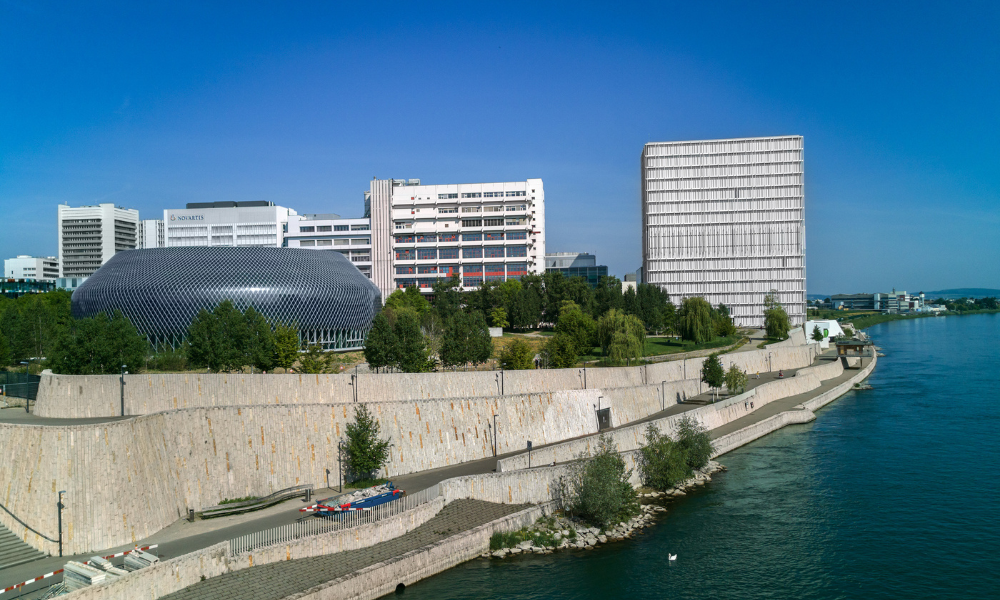Business leaders share their current challenges as they navigate digital transformation

The global pandemic, digitisation, and employee mobility – otherwise known as the great resignation or reshuffle, have come together to form a perfect storm that is creating a major transformation in the workforce and with that change comes a few challenges for leaders.
How do you, in a dispersed workforce think about identity, leadership and management? How does a brand maintain its relevance? Where do people work? How do people work? How do you interface with employees that you cannot directly control?
These are challenges that most businesses are facing right now so how is this affecting how HR needs to think from an organisational dynamic’s perspective?
Read more: Transformational leadership traits. Do you have these?
At a recent roundtable session hosted by HRD and Roffey Park Institute, and chaired by Dr Robert Coles, business leaders identify the challenges facing them during a major cultural transformation in the workforce and discuss how methodologies businesses employed pre-pandemic are not necessarily very useful going forward.
To begin, Dr Coles gave his own insights as before inviting the panel to discuss those.
The elements of the triarchy of transformation
- Structural transformation – organisations are no longer closed system entities, they are massive open entities
- Relational transformation – the way employers and employees interact is becoming increasingly complex and technology driven
- Interactional transformation – a lot of the tools that we’re using are simply not relevant to the challenges that we’re facing.
The psychological contract is over.
Individuals gave effort, ability, loyalty, skills time, they brought their competencies to an organisation and in return the organisation gave pay, job security, benefits, career development, status, promotion – this is the transactional basis for the psychological contract but as the world becomes increasingly values driven, the transactional model no longer works.
Organisations are networks now
Gone are the days of discussing organisational structure, organisations are networks now, which means the way leaders look at employee skill, competence, and performance needs to evolve.
The new psychological contract
The brand supplies
- Values for alignment
- Development for sustainability
- Connection for wellbing
The employee chooses
- The best fit
- The most exciting proposition
- The most engaging environment
The three critical functions of 21st century HR
- Identity – How do you sustain alignment with dispersed employees who represent your brand from a spare space in their living environment?
- Interface – How do you enable and sustain creative action within and between organisations or teams?
- Integration – How do you differentiate between aspects of activity that require high levels of structural control versus those that don’t?
The culture zone
Leadership is about clarity of purpose and direction, and a narrative as to why we're doing what we're doing and how it's delivered. Management is fundamental to the performance of an organization. Culture develops at that point when leadership and management come together. When the two things are aligned you end up with a positive culture.
Read more: What’s the key to successful digital transformation?
The panel was made up of business and HR leaders from a wide range of industries. Round table host Kylie Speer asked panellists to discuss a series of questions
Round One
1. How do we understand the impact of cultural practices on transformation strategies? Are all transformations alike or shaped by historical organisational culture?
Many on the panel agreed that leaders were coming to them seeking transformation but not explaining anything further than that. A panellist from a property development company claimed that the word transformation is jargon.
“Rather than talk about transformation, we recognise that the pandemic has set us back quite a bit. We share very openly what our numbers are and what they used to be. So, our focus and our communication has always been what do we need to do differently. If we can’t communicate the way we used to, how else can we communicate?”
Dr Robert Coles of Roffey Park Institute agreed with the assessment that the word transformation was jargon but said that the idea of transformation worked because it was a very practical way of thinking about it describing transformation as the point of engagement with the end user.
A Business HR Director said his companies transition through COVID was seamless. Despite challenges they managed to maintain 100% of their manufacturing capacity and have adopted a hybrid first company stance for their non-manufacturing staff.
Dr Coles mused digital nomads aren’t experts in technology, they are simply consumers of technology. Stating that his older staff found the technological transition much easier than his younger staff who were helpless in the face of technological challenges.
A global HR business partner from a company that has transformed from being a very product driven company to a technology driven company over the last ten years said that leadership values play an extremely important role in driving transformation but also in creating the overall environment that helps people to thrive and excel.
Dr Coles said that the general theme that came through in all the answers was that there is an increasing focus on enabling people to thrive, and there’s a real return to value driven HR.
2. In a world where organizations almost daily work in partnership or alliance with other organizations to achieve their aims, how are these inter organizational boundaries going to be managed during periods of massive change?
A panellist tabled that he was pleasantly surprised in terms of how well organisations came together during the pandemic to work towards a common outcome after restrictions during the pandemic caused him to reach out to other industries to develop stringent protocols and advocate the government so they could keep their businesses going.
Dr Coles said it was fascinating how capable we are of massive change and reorganisation in a very short time and thought that a lot of the changes in his organisation would never have happened without the pandemic.
Another panellist said that her organisation works with its suppliers to transfer their manufacturing processes into smart factories by leveraging their own experience through COVID.
One panellist said that her company found there was a great deal more engagement with the government. They were engaged in almost daily contact with top level people from Singapore’s tourism board and Ministry of Manpower and praised their consultative approach.
Dr Coles said that he had been involved with governments all over the world during COVID and agreed that Singapore’s response was very effective. He went on to offer that often managers aren’t equipped to manage partnerships effectively because they’re in a situation where they suddenly don’t have control.
Round Two
1. How do we as leaders enable more focus on cross organization interface sustainability and wellbeing?
Dr Coles said that one of the challenges in inter organisational partnerships and alliances is they often have the same values but in practice, they have very different ways of understanding what those values mean.
A panellist offered that their company had doubled the investment in mental wellness initiatives over the last couple of years and said employees were responding to that really positively and agreed with Coles’ earlier point that the pandemic has taught us how fast we can adopt and adapt to new things.
Dr Coles iterated the importance of not medicalising human emotions and said that a lot of the time he thinks that some wellbeing offerings are a substitute for teaching people to better manage themselves and thinks a lot of what we are calling mental health is perfectly normal human emotions.
One panellist said they have had an in-house chaplain and EAP for their employees for the last seven years. They also have annual health screening and mental health risk assessment but worried that that wasn’t enough and wondered if she could be doing more.
Another panellist disagreed with Dr Coles but warned that people should be cognisant of some of the changes that have happened so rapidly in the span of a generation.
2. In this world of virtual, digital, potentially non-physical organizations? How do we manage the challenges of brand and work identity?
Dr Coles said that in an office environment you wrap employees in your brand and the challenge for organisations now is how do you incorporate your brand into all these remote spaces over which you have no control.








